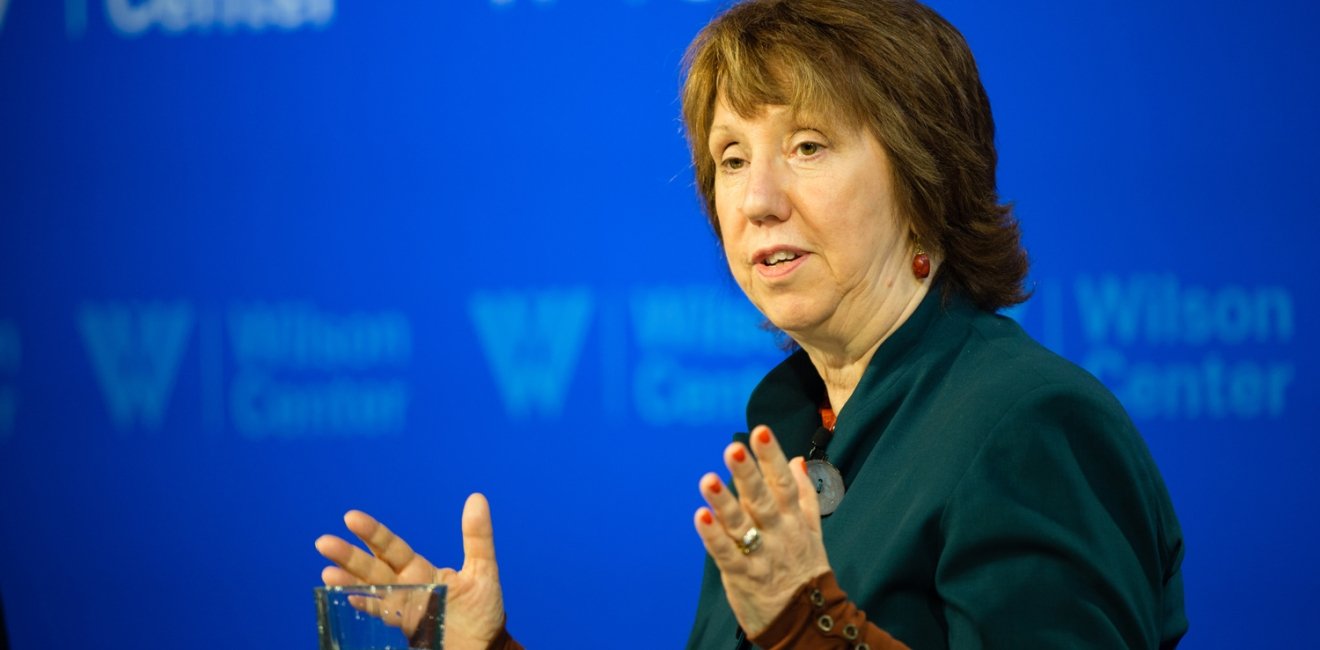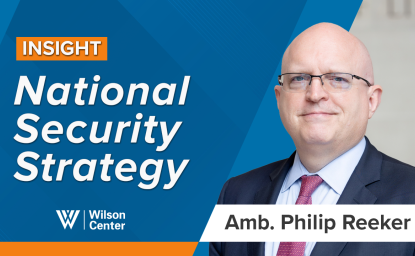PRESS RELEASE
Contact: Ryan McKenna
Phone: (202) 691-4217
ryan.mckenna@wilsoncenter.org
March 27, 2018
WASHINGTON – Baroness Catherine Ashton will serve as the new chair of the Wilson Center’s revitalized Global Europe Program, drawing upon decades of leadership in European and international diplomacy to help Washington understand a changing continent in dynamic contexts.
“The strength and resilience of the EU is being tested, and whether Europe can escape from its present woes will depend on its projection and relationships beyond its borders. I am eager to lead the Global Europe Program’s work to analyze the continent in the context of external factors and through the lens of broader geopolitical change,” Baroness Ashton said.
The Right Honourable Baroness Catherine Ashton served as the European Union's first High Representative for Foreign Affairs and Security Policy from 2009 to 2014. She earned wide praise as a negotiator, leading the P5+1 talks on Iran’s nuclear program and galvanizing agreement between Serbia and Kosovo.
Previously, Baroness Ashton served as the first woman Commissioner for Trade in the European Commission and the first woman British European Commissioner. A Life Peer in the British House of Lords, she is a former nominee for the Nobel Peace Prize, among other accolades. She served as a Distinguished Fellow at the Wilson Center in 2017.
“Baroness Ashton brings an unparalleled wealth of insider knowledge about the workings of the EU as well as Europe’s place in a fast-changing world. Her perspective and wisdom will help renew our Global Europe Program as an invaluable resource to the policymaking community,” Wilson Center President and CEO Jane Harman said.
Through the research and analysis of in-house scholars and Europe-based global fellows, high-profile events, and a diverse set of publications, the Global Europe Program aims to broaden the transatlantic dialogue by illuminating European policy issues of critical importance to the United States and to today’s geopolitics.
Analyzing developments in the spheres of energy, trade, defense, migration, human rights, and more, programmatic activities focus on creating deeper understanding of Europe on the world stage. Relationships of particular attention include Europe and the United States, Europe and Russia, and Europe and China.
Drawing upon the Wilson Center’s strength as the world’s #1 regional studies think tank, Global Europe partners with the Kennan Institute, the Kissinger Institute, and other programs in its work.
Follow the Global Europe Program on Twitter and Facebook.
Notes to editors:
- The Wilson Center provides a strictly nonpartisan space for the worlds of policymaking and scholarship to interact. By conducting relevant and timely research and promoting dialogue from all perspectives, it works to address the critical current and emerging challenges confronting the United States and the world.






